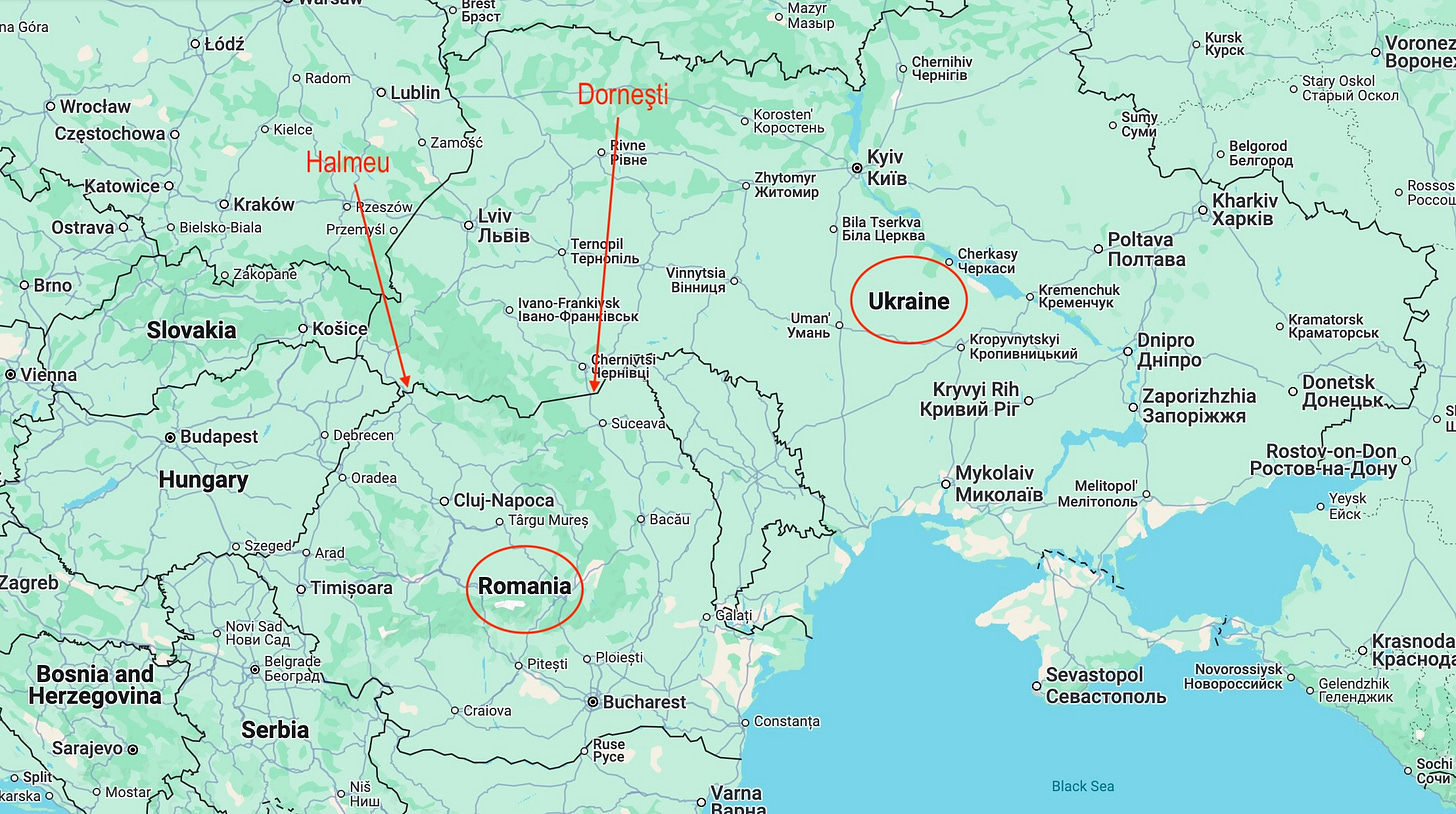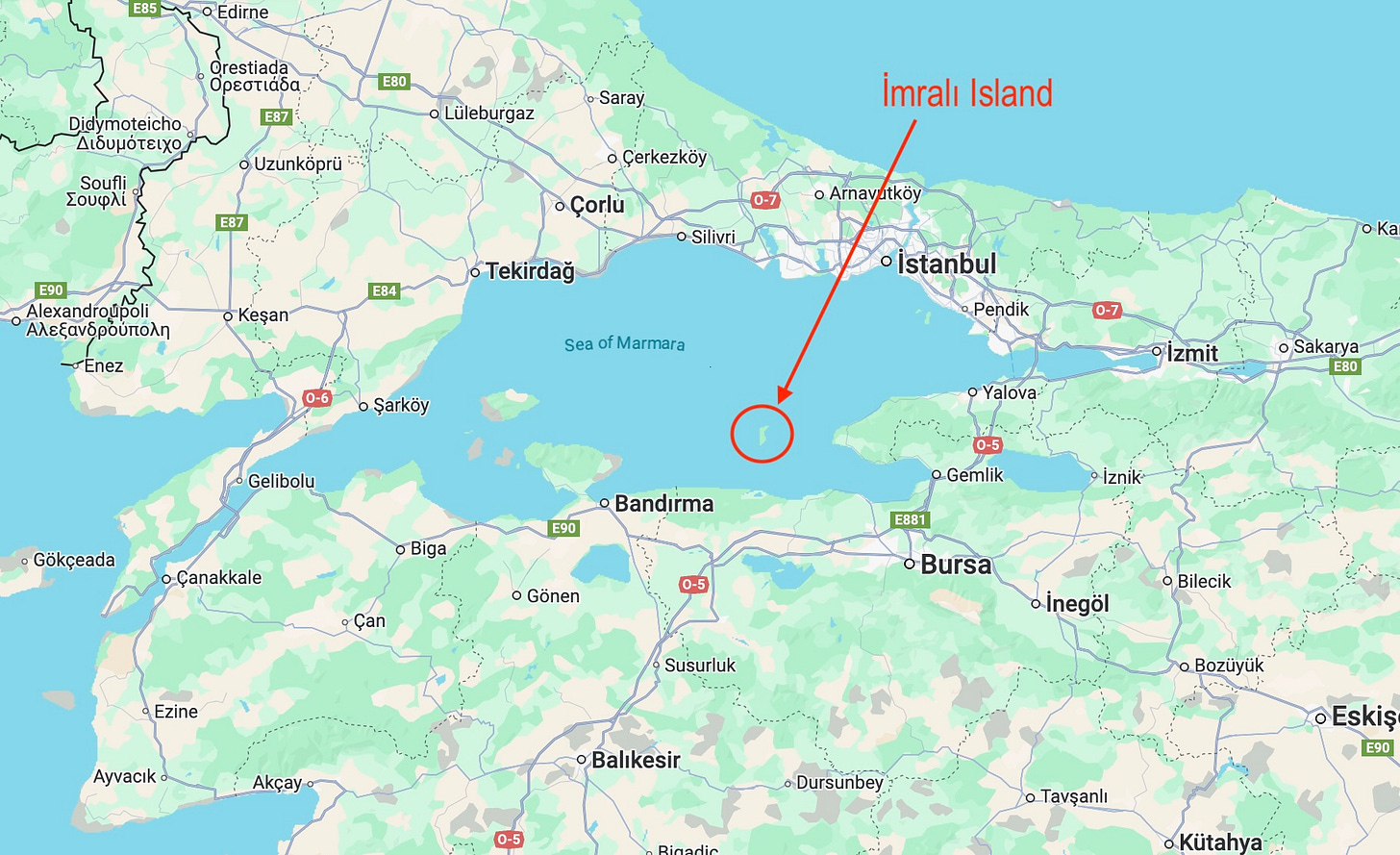Hi, welcome. Every week Common Sense and Whiskey takes a short, sharp look at the world out there. Today kicks off my favorite political weekend of the year, the Munich Security Conference. Most years it gathers in one place the highest concentration of heavyweights in the West. Its website, woeful in the past, looks like it may offer up a little more streaming content this year. We’ll have to see.
First just a word on Ukraine. Pete Hegseth’s remarks in Brussels this week set off a chorus of horror, but in truth he didn’t say much that hadn’t already been assumed, including during the Biden administration. Any peacekeeping troops will not be American but the US could provide some form of air cover. The US is (still) trying to pivot to Asia so Europe must take the lead and re-commit to Ukraine’s security. Hegseth does “not believe that NATO membership for Ukraine is a realistic outcome of a negotiated settlement,” but did not strictly rule it out in the future.
The real controversy comes in the Trump administration’s seeming intention to negotiate with Vladimir Putin over the heads of not just Zelenskyy in Ukraine but Europe as well. Just an initial thought: since most big European countries are in NATO, this must feel like an end run around the alliance. And Europeans have bet the mortgage on the alliance. This ought to be a dramatic weekend at the Bayerischer Hof in Munich.
An article published here last weekend, A New Playbook, drew enthusiastic response. The best way I know to spread messages like the one in that article is by word of mouth, by recommendations from friends. Please use this button to share CS&W with someone who trusts your judgement. Thanks.
This week we look into two important European elections, we tell a tale of real life espionage ending on a Turkish prison island and there’s a new installment of a regular feature, politicians acting silly. Finally, we speculate on the world’s best jobs. Tell me what you think at billmurraywriter (at) gmail.com. Thanks for reading. Here we go:
TWO EUROPEAN ELECTIONS
In election season politicians do and say whatever they think will help them win. Let’s see what they’ve been saying in two upcoming European elections, in Germany and Romania.
In a debate last weekend, German frontrunner Friederich Merz allowed that he is open to reforming the country’s strict borrowing rules. This is important because the Germany economy, once the engine of European growth, is struggling. The next German leader will be under pressure to increase defense spending, and get his economy moving again. Where will he get the money?
The 2009 German Schuldenbremse ("debt brake") is a rule designed to limit public debt. The rule restricts the federal government's structural deficit to 0.35% of GDP and generally prohibits states from running deficits.
Following the global financial crisis of 2007–2008 Germany’s leaders feared becoming paymasters for a Eurozone bailout, so by enshrining strict debt limits in the country’s Basic Law (Grundgesetz), Germany signaled fiscal discipline, but also declared that Eurozone countries should take responsibility for their own finances.
Chancellor Merkel and her Finance Ministers could shrug and ask, “what can I do? I’m prohibited by this law (that just passed with my support) from bailing you out.” A decade and a half later, would be Chancellor Merz may think it’s time to ease off on the debt brake.
Germany’s election is Sunday the 23rd.
In Bucharest, meanwhile, President Klaus Iohannis resigned this week. Senate leader Ilie Bolojan will succeed Iohannis in the interim, pending a new presidential vote now planned for May 4, with a possible run-off on May 18.
This is the election you’ll recall was cancelled by authorities after charges of Russian interference. This is a real crisis for Romania because the constitutional court cancelled the election after the first round was held, just two days before a runoff was likely to confirm the victory of far-right Presidential candidate and Russian apologist Călin Georgescu.
In the first round, on November 24 last year, Georgescu led with 22.95% of the vote. Nobody expected that. He spent almost no money on his campaign. He seems to have been elected solely because of his use of TikTok.
Far-right opposition parties have been in the streets since the cancelled election calling for Iohannis’s resignation, with some justification. Iohannis was asked by the Constitutional Court to stay on in the interim, even though he was term limited and his two terms had expired.
A court annulling an election after it has happened isn’t a good look for eastern European democracy, even though clearly, voter manipulation occurred. Birthing democracy isn’t easy, and Romania has only been a democracy for thirty-five years. The protests show it takes time for the legitimacy of institutions like the Constitutional Court to take root among the population.
Iohannis has been a steadfast supporter of Ukraine in its defense against Russian aggression. Romania has played a crucial role as a conduit for military aid, facilitating movement of weapons and equipment across their common border, almost certainly via the two transport corridors at the Romanian towns of Halmeu and Dorneşti (map below).
A floundering democracy in southeastern Europe is precisely what the EU doesn’t need. The obvious immediate beneficiary is Putin supporter Călin Georgescu in his quest for the presidency. Clear losers internationally are Ukraine and its Western supporters.
(Elsewhere, talks to form a new government collapsed in Vienna this week. Austria’s most recent election, in September, gave the far-right Freedom Party a lead, with a little under a third of the vote, but it has been unable to form a coalition. As of Thursday night President Alexander Van der Bellen continued talking with the parties and new snap elections remain on the table.)
•••••
POLITICIANS DOING SILLY POLITICIAN THINGS: Video from the ‘No Comment’ section of Euronews.com:
•••••
REAL LIFE ESPIONAGE STUFF: Abdullah Öcalan, jailed leader of Kurdish militant group the PKK, will soon make a “historic call” for an end to his group’s insurgency against the Turkish government, according to Turkey’s pro-Kurdish DEM political party.
Journalist Murtaza Hussain said such a move would be a “transformative moment in the Middle East,” with particularly positive impact in Syria, where the fledgling Turkish-backed government is struggling to find a modus vivendi with PKK-linked militias in the country’s northeast.
This is worth watching. Back in October Devlet Bahçeli, leader of Türkiye’s MHP (Nationalist Movement Party) proposed that Öcalan could be allowed to address the Turkish parliament if he announced an end to the PKK's insurgency. That was remarkable because it was so improbable. The ultranationalist MHP despises Abdullah Öcalan.
It has always seemed Turkish leader Tayyip Erdoğan despises him, too. Erdoğan pressured Hafez al-Assad (Bashar’s father) to expel Öcalan from his refuge in Syria in 1998. In what would make a terrific movie, Öcalan sought refuge in Russia, Greece, Italy and eventually in Kenya at the Greek Embassy.
With rumored support from the CIA and Mossad, Turkish agents intercepted him and spirited him back to Türkiye, where he has whiled away the time since at İmralı F-Type High-Security Prison on İmralı Island, in the Sea of Marmara south of Istanbul. For a while, Öcalan was the only prisoner on the island, guarded by a heavily fortified security detail.
Now that revolution has come to Syria, orchestrated in part by Erdoğan, we’re left to wonder what further reordering of the region the Turkish leader has in mind, and whether his orchestra conducting days are done.
•••••

WORTH A THOUSAND WORDS: Jordan’s King Abdullah with Donald Trump in the Oval Office on Tuesday. That grimace, from a king with good reason to be forever diplomatic, does not signal a successful meeting.
Abdullah simply can not host half of Gaza’s uprooted Palestinians, as Donald Trump seems to have planned. It’s not in the cards and Abdullah is hearing from his own street. At a demonstration this week in downtown Amman, Yanal Freihat, leader of the largest bloc in the Jordanian parliament, exhorted Jordanian politicians, “You must believe in our people and stop making America God.”
Lying awake at night after that photo with the American president, it must at least enter the King’s mind whether, if he had to, a desperate, last gasp alliance shift, say, to Russia or China would keep him alive.
It’s probably no solace, but it ought not be this way. Normally the Jordanian leader wouldn’t be summoned to Washington to validate a plan that would evict a population, because that would be a crime against humanity, something American presidents, historically, have not advocated.
•••••
DIPLOMACY AND DOPE: Reuters reported that Trump administration Middle East envoy Steve Witkoff made an impromptu visit to Russia on Tuesday and secured the release of US national Marc Fogel, who’d been in a Russian prison since 2021 on drug charges. Russian authorities caught Fogel, a schoolteacher, with marijuana (medicinal, apparently) at Sheremetyevo airport and eventually sentenced him to 14 years in prison.
Two questions:
‘Impromptu visit to Russia?’
And for Mr. Fogel, who was surely arrested on trumped up charges, congratulations and welcome home. But how could you possibly show up in a Russian airport with marijuana in your pocket?
•••••
If you’re reading this as an email, your provider may clip this article before the end. Try clicking on ‘view entire message’ to see the whole thing, or you can always read everything at Common Sense and Whiskey online.
•••••
MORE FROM THAT USER’S GUIDE TO THE FAILURE OF DEMOCRACY Two weeks ago I posted a handy checklist so we can all play along at home as the Trump team uses the Orban playbook’s tried and true methods to dismantle the pillars - assembled over centuries - of US democracy. At the weekend NBC reported that:
WASHINGTON — The Department of Defense announced Friday night that it will institute a new “annual media rotation program” for its in-house press corps, effectively removing several major news outlets, including NBC News, from their Pentagon office spaces.”
It said that “In addition to NBC News, The New York Times, National Public Radio and Politico must vacate their dedicated workspaces.”
They will be replaced by One America News Network, the New York Post, Breitbart News Network and HuffPost. HuffPost does not have a Pentagon correspondent, and the site did not request a space, NBC reported.
Then a week ago, ABC reported that:
The Trump administration on Friday doubled the number of news organizations it is evicting from their workspaces at the Pentagon in order to rotate in more friendly outlets.
CNN, The Washington Post, the Hill and War Zone will be asked to leave their spaces, with Newsmax, the Washington Examiner, the Daily Caller and the Free Press moving in, according to a memo from John Ullyot, acting assistant to Defense Secretary Pete Hegseth.
That checklist? It’s time to play, because they’re doing it.
IT DID HAPPEN HERE
•••••
WE’LL MISS HER NOW SHE’S GONE The Federal Trade Commission's mission is to prevent anticompetitive, deceptive, and unfair business practices. The Biden administration was active on that front, beginning with the appointment of 32 year old Lina Khan as FTC Chair in 2021, whose last day in office was January 31st.
While at Yale Law in 2017 Khan wrote a paper titled "Amazon's Antitrust Paradox,” arguing the US antitrust framework wasn’t built for ‘platform monopolies’ like Amazon (about which, in turn, Yanis Varoufakis wrote an engaging book, Technofeudalism). That paper brought her fame in the antitrust world and probably her FTC job.
Ms. Khan was an extraordinarily active FTC Chair. Consider this partial list of accomplishments:
1 The FTC unanimously adopted policies supporting consumers' rights to repair their own devices, challenging companies that impose restrictions on independent repairs.
2 The FTC halted Kroger’s Attempted Acquisition of Albertsons, a $24.6 billion grocery merger, citing concerns over reduced competition and potential price increases for consumers.
3 The FTC introduced a regulation requiring companies to simplify the cancellation process for subscription services, ensuring it is as straightforward as signing up.
4 The FTC issued a regulation prohibiting non-compete agreements for employees, aiming to enhance labor market competition. However, this rule was struck down by a federal court in August 2024.
5 A federal judge ruled Google as a monopoly and ordered the divestiture of its Chrome browser, aligning with the FTC's stance on maintaining competitive markets.
Let’s watch now, and see how long before these accomplishments are undone by the Trump team. About that new administration, The New Republic reports that “the president fired the chairman of the Consumer Finance Protection Bureau, Rohit Chopra. Under Chopra, CFPB limited overdraft fees, removed medical bills from credit reports, and initiated a regulatory crackdown on surveillance by data brokers.”
The article says the president has also disabled, pending legal challenges, the National Labor Relations Board and the Equal Employment Opportunity Commission. It makes the larger argument that these actions overwhelmingly affect the workers Donald Trump pledged to help, the very voters who swung the presidential election to the Republicans.
Matt Stoller describes what it all means:
“Let’s start with some of the small stuff that will now change. Rules against excessive overdraft fees? Gone. A rule capping credit card late fees? Gone. Oversight of debt collectors and payday lenders? No more. An honest site to compare credit card products? Likely gone. In 2023, the CFPB said that big banks can’t charge junk fees for basic customer service, like being able to check the amount of money in your account. The reason isn’t just that it’s nice, but that big banks themselves were unable to offer basic information, like who owned mortgages, prior to 2008. That’s gone too. Another rule put forward recently is that mortgage servicers can’t garner excessive fees when they foreclose, which is an incentive to foreclose rather than working out loans. No longer.
And then something more significant. In July, the CFPB proffered an interpretive rule for how companies, such as Walmart, Kroger, and Wendy’s, give “paycheck advances” to their employees, charging over 109% in interest charges. About 5% of workers use these, and the number is increasing rapidly. Is there disclosure of the terms? That’s not clear. But now that there’s no one paying attention, we can expect these company store-like products to be everywhere.”
•••••
I remember a B.C. comic strip, one in particular, from years ago. In the first panel it’s a sunny day. One person is explaining to another that in golf the object is to hit the fewest strokes. In panel two the explainee says, ‘then why play at all?’ in panel three the moon is out. The explainer is alone, staring into the night with those big comic strip eyes. We’re probably all in for a few of those ‘stare into the night’ moments.
What does it mean when by established measures, the American economy is outperforming the rest of the world but the middle class thinks it is in recession? What does it mean when a narrowly victorious president claims a giant mandate and sets to work dismantling provisions built up over decades to protect those who just elected him?
Beats me. But it feels like we’re in for a long ride.
•••••
WORLD’S BEST JOBS: My favorite job in the world would be Secretary of State, no question; your job is travel and you get your own plane. High up the list of consolation prizes might be chairman of the Munich Security Conference—such access to powerful people.
I declare it mildly unfair that Jens Stoltenberg was announced as the next chairman of the MSC last October. He was just NATO Secretary-General. Three months ago Stoltenberg was appointed co-chair of the Bilderberg Group, the cabal that secretly runs the world. And now the MSC gig is on hold while he serves as Norway's Finance Minister. How many cool jobs is enough for one man?
Which immediately brings to mind George Osborne. After serving as the UK's former Chancellor of the Exchequer, he became editor of the London Evening Standard. He served as an advisor to BlackRock (another cabal running the world), earning £650,000 annually for one day a week. In 2021 he joined investment bank Robey Warshaw and by 2024 he and two other partners shared a £29.5 million payout following the firm's record profits. And, oh. He’s Chair of the British Museum.
Some guys get all the jobs.
•
Content is free on CS&W. There’s no paywall, but if you like what you read I’d be grateful if you’d subscribe for $5 a month or $50 a year for 2025. You tip your UberEats driver, don’t you? Of course you do. I have probably approximately as much insight as him or her. Approximately. Thanks for reading. Please ask your friends to subscribe. See you next week.
Bill
© 2025 Voices, Inc.












